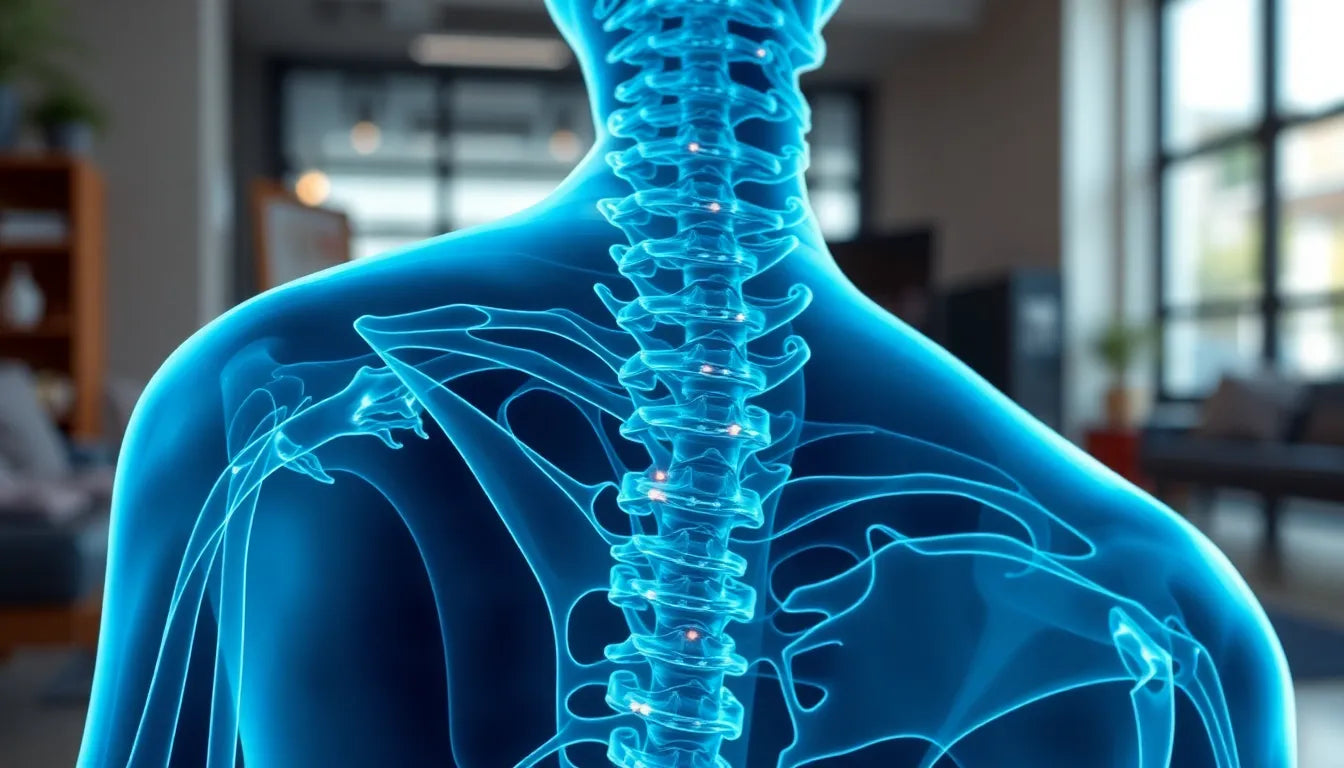Understanding the nuances of insurance coverage can be a daunting task, especially when it comes to specific injuries like herniated discs. These injuries, often resulting from accidents, can be debilitating, affecting one's ability to work and perform daily activities. As such, knowing whether your accident insurance covers a herniated disc is crucial for ensuring you receive the appropriate compensation and support during recovery.
what is a herniated disc?
A herniated disc, sometimes referred to as a slipped or ruptured disc, occurs when the soft inner core of a spinal disc pushes through a crack in the tougher exterior casing. This condition can cause significant pain, numbness, or weakness in an arm or leg, depending on the location of the herniated disc. It is a common injury, often linked to accidents such as car crashes or falls, and can require extensive medical treatment ranging from physical therapy to surgery.
how accident insurance addresses herniated discs
Accident insurance policies are designed to provide financial protection for injuries resulting from unexpected incidents. However, the coverage specifics for herniated discs can vary widely among different policies. Some insurance plans may cover the full range of medical expenses associated with treating a herniated disc, while others might have limitations based on the severity of the injury or the type of treatment required.
Understanding the terms and conditions of your accident insurance policy is essential. This includes knowing whether your policy requires a formal diagnosis within a specific timeframe after the accident, typically 90 days, to establish a direct link between the injury and the incident. Meeting these criteria is often necessary to ensure that your claim is accepted and that you receive the benefits you're entitled to.
why knowing your coverage is crucial
Being aware of the specifics of your accident insurance coverage can make a significant difference in your recovery process. If your policy covers herniated discs, it can alleviate the financial burden of medical bills, allowing you to focus on healing rather than worrying about costs. Moreover, understanding your coverage can help you make informed decisions about your treatment options and ensure that you receive the best possible care.
The aim of this post is to unravel the complexities surrounding accident insurance coverage for herniated discs. By providing clarity on potential compensation and legal considerations, we hope to empower you with the knowledge needed to navigate your insurance policy effectively. Stay tuned as we delve deeper into the specifics of coverage, eligibility, and the factors that influence compensation in the following sections.
understanding coverage and eligibility for herniated discs
Accident insurance can indeed cover herniated discs, but the specifics of coverage are highly dependent on the terms of your individual policy. Typically, for an insurance claim to be successful, a physician must diagnose the herniated disc within a specific timeframe, often 90 days following the accident. This requirement ensures that the injury is directly associated with the incident covered by the insurance policy. Failing to meet this deadline could result in a denial of coverage, emphasizing the importance of timely medical evaluation.
factors influencing your coverage
The extent of coverage for a herniated disc is influenced by several factors, primarily the severity of the injury. The level of pain, mobility issues, and the necessity for treatments like physical therapy, injections, or surgery play significant roles in determining the compensation amount. For example, a minor herniated disc that resolves with minimal intervention might receive less coverage compared to a severe case requiring surgery and long-term rehabilitation.
case study: how injury severity impacts compensation
Consider a hypothetical scenario where two individuals suffer herniated discs from separate car accidents. The first individual experiences mild discomfort and undergoes a few weeks of physical therapy, while the second individual requires surgery and extensive rehabilitation due to severe pain and mobility issues. The second individual is likely to receive higher compensation due to the increased medical expenses and impact on their quality of life. This illustrates how the injury's severity directly affects the level of insurance compensation.
exploring types of insurance and their benefits
Beyond standard accident insurance, other types of insurance can provide coverage for herniated discs. Personal Injury Protection (PIP) and Uninsured/Underinsured Motorist (UM/UIM) coverage are particularly beneficial, especially in states like Texas. PIP can help cover medical bills and lost income, while UM/UIM coverage is crucial if the at-fault driver lacks sufficient insurance. These policies ensure that you are financially protected, even in complex accident scenarios.
Accident insurance policies often include specific benefits for herniated discs, such as coverage for medical treatments and surgical procedures. These benefits are usually detailed in the policy's schedule of benefits, highlighting the importance of reviewing your insurance documents thoroughly to understand what is covered.
comparing insurance options for herniated disc coverage
| Insurance Type | Potential Benefits |
|---|---|
| Accident Insurance | Covers medical treatments, surgical procedures, and rehabilitation for herniated discs. |
| Personal Injury Protection (PIP) | Helps cover medical bills and lost income, regardless of fault. |
| Uninsured/Underinsured Motorist (UM/UIM) Coverage | Provides protection if the at-fault driver has insufficient insurance. |
Understanding these various insurance options and their benefits is crucial in ensuring you receive the appropriate coverage for a herniated disc. By familiarizing yourself with the specifics of your policy, you can better navigate the claims process and secure the compensation needed for your recovery.
Legal and settlement aspects of herniated disc claims
When dealing with herniated disc injuries resulting from accidents, understanding the legal and settlement aspects is crucial for ensuring fair compensation. Settlement values for these injuries can vary significantly, often ranging from $50,000 to $350,000 or more. These figures depend on several factors, including the severity of the injury, the type of medical treatments required, and the overall impact on the individual's life.
In Texas, specific laws such as the modified comparative fault rule and the statute of limitations can influence the compensation process. Under the modified comparative fault rule, an injured party can only receive compensation if they are less than 51% at fault for the accident. Additionally, the statute of limitations imposes a deadline for filing a lawsuit, typically two years from the date of the accident. These legal factors highlight the importance of consulting with a car accident attorney to navigate the complexities of herniated disc claims effectively.
Insights from experts and resources
Consulting with legal experts, such as those from Lorfing Law and Crosley Law, can provide valuable guidance in understanding the nuances of herniated disc settlements. These firms emphasize the importance of expert analysis in calculating settlement values and ensuring fair compensation. Additionally, resources like the Unum Accident Insurance Booklet offer factual and policy-oriented guidance on the benefits and conditions of accident insurance coverage for herniated discs. By leveraging these insights, individuals can make informed decisions about their claims and secure the compensation they deserve.
Frequently asked questions
What is a herniated disc, and how does it occur?
A herniated disc, also known as a slipped or ruptured disc, occurs when the soft inner core of a spinal disc pushes through a crack in the tougher exterior casing. This condition is often caused by accidents such as car crashes or falls and can lead to significant pain and mobility issues.
How soon after an accident should I see a doctor to ensure coverage?
To ensure coverage under accident insurance, it is typically required to have a physician diagnose the herniated disc within 90 days of the accident. This timeframe helps establish a direct link between the injury and the incident, which is crucial for the acceptance of your insurance claim.
What types of treatments are typically covered under accident insurance?
Accident insurance often covers a range of treatments for herniated discs, including medical consultations, physical therapy, injections, and surgical procedures. The specific treatments covered depend on the terms of your individual policy.
How do I know if my insurance policy includes coverage for a herniated disc?
To determine if your insurance policy covers herniated discs, review the policy's schedule of benefits. This document outlines the specific conditions and treatments covered by your plan. Consulting with your insurance provider can also provide clarity on your coverage.
What should I do if my claim is denied?
If your claim is denied, consider consulting with a car accident attorney to explore your options. They can help assess the validity of the denial, guide you through the appeals process, and advocate for your rights to ensure fair compensation.
Conclusion
Understanding the intricacies of accident insurance coverage for herniated discs is essential for securing the compensation needed for recovery. By familiarizing yourself with the legal and policy aspects, consulting with experts, and reviewing your insurance documents, you can ensure that you are adequately protected and compensated for your injuries. Remember, seeking professional advice is crucial in navigating the complexities of insurance claims and achieving a fair settlement.
























